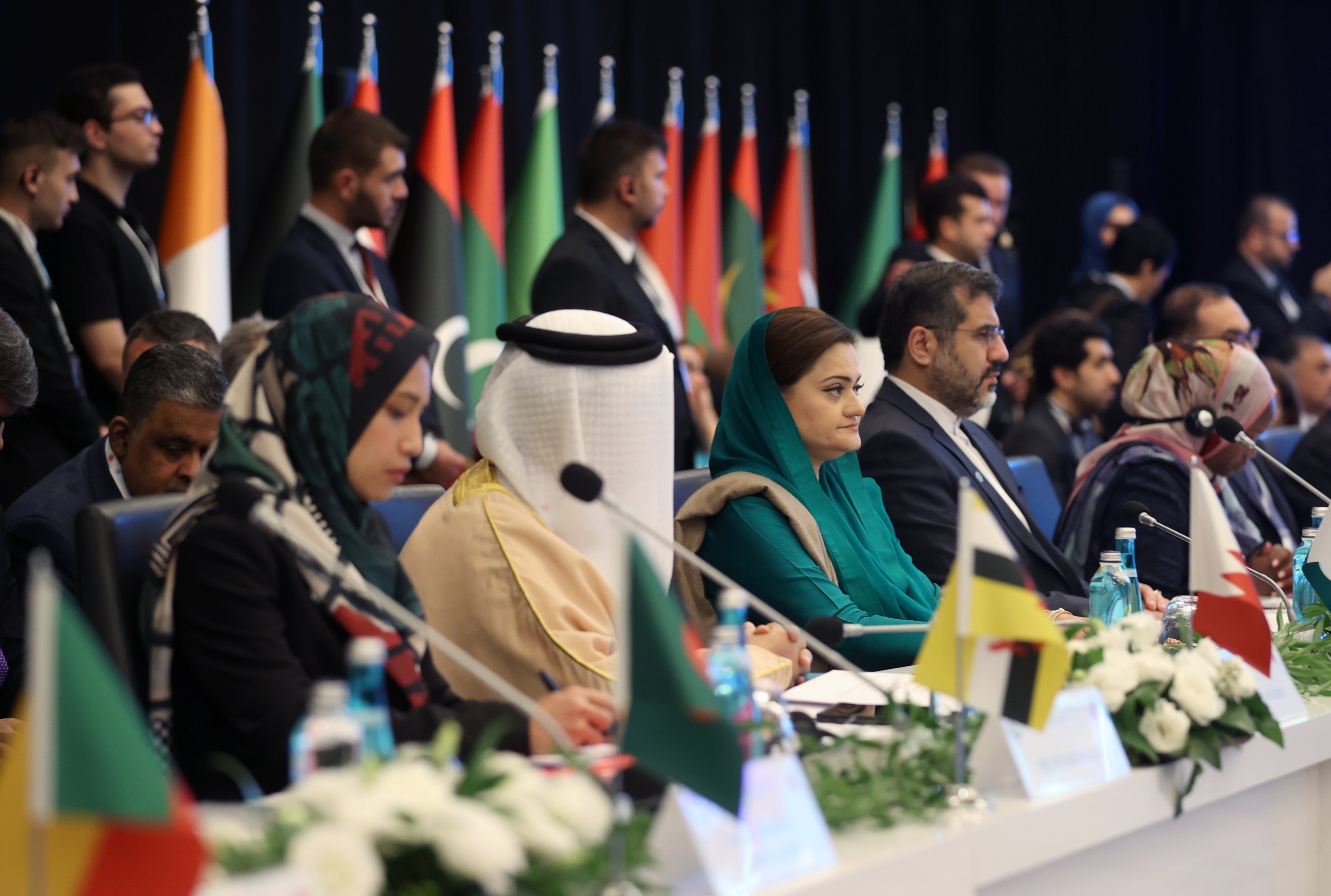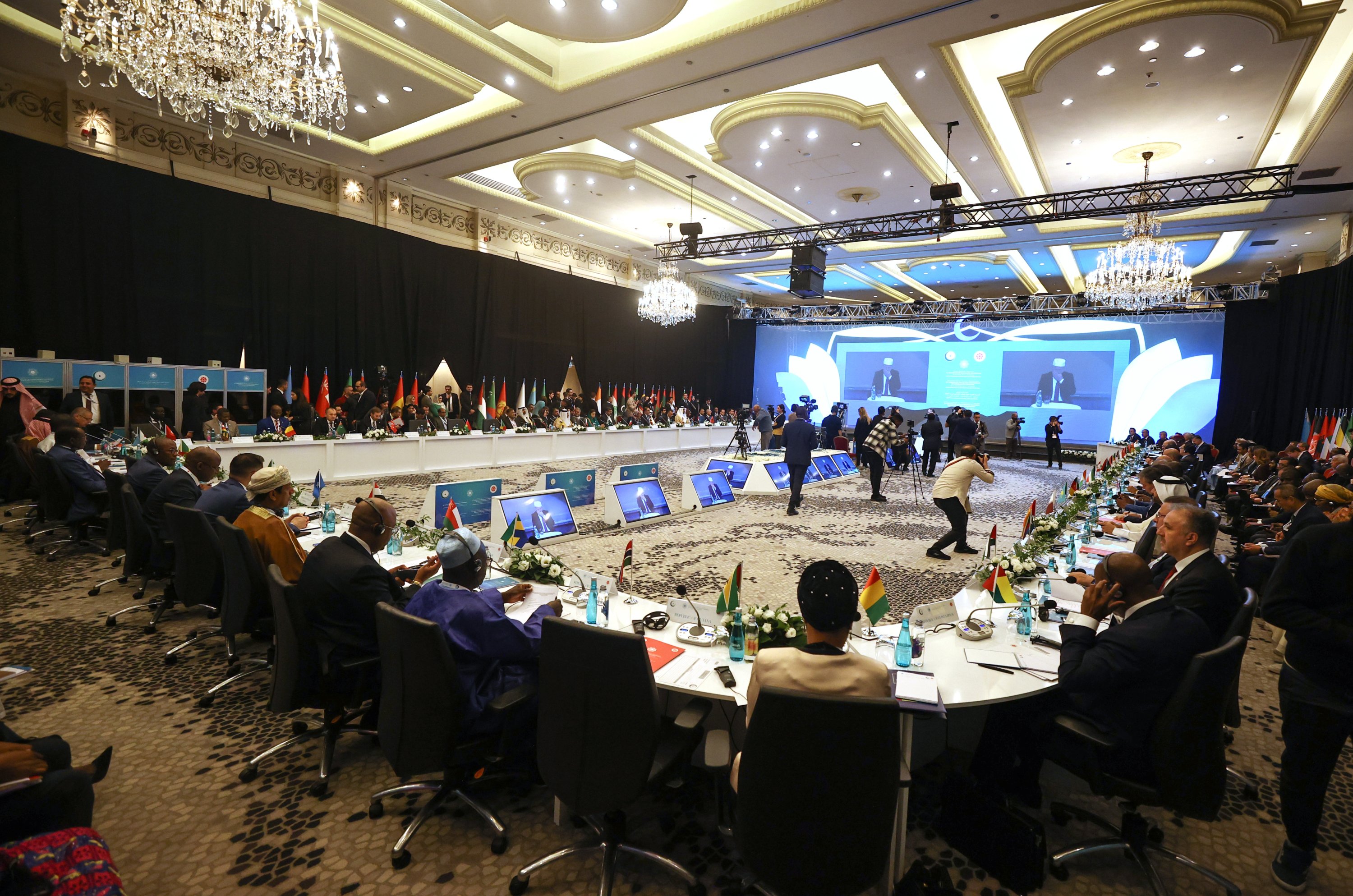© Turkuvaz Haberleşme ve Yayıncılık 2024
The Organisation of Islamic Cooperation (OIC) adopted a declaration to fight against disinformation and Islamophobia, Türkiye's Communications Director Fahrettin Altun said on Saturday following the conclusion of the organization's two-day conference held in Istanbul.
"Undoubtedly, disinformation and Islamophobia are among the strategies used by the colonial order established in the context of media and information in the international arena.
"Therefore, we need to wage an effective and multidimensional struggle in solidarity against this colonial order. For this reason, we have accepted the Istanbul Declaration at our conference today," Altun said at a news conference following the 12th Conference of the Information Ministers of the OIC.
During the two-day conference in Istanbul, ministers and high-level representatives from 57 countries discussed several issues, seeking to deepen cooperation in the fields of media, communications and information in the Islamic world.

The conference, held under the theme of "Combating Disinformation and Islamophobia in the Post-Truth Era,” aimed to develop and strengthen the cooperation of Islamic countries in the field of media and communications.
The Istanbul Declaration, Altun said, was adopted at a critical time when the countries struggle against Islamophobia.
"In the declaration, we emphasized the importance of combating systematic disinformation in the digital age we live in.
"We have pointed out the threat that disinformation activities and fake news pose to the security of individuals and countries, as well as to the Muslim community and minorities around the world."
Altun said in the declaration they also reaffirmed commitment to the Palestinian cause and reiterated solidarity with the Palestinian people.
"We have put forth a will to give more coverage to Israel's unlawful actions in Jerusalem in the member states' media and to share more with the international public the grievances of the Palestinian people against Israel's propaganda activities," he added.

In the Istanbul Declaration, members reiterated that the Islamic world unanimously condemns all forms of violence, extremism, radicalism and terrorism, Altun said.
"We agreed that the Secretariat General of the OIC should organize social media campaigns that reject terrorism, violence and extremism and call for dialogue and coexistence."
Altun also said they decided to form an international channel under the OIC to promote the activities of member countries and related institutions.
"Within the scope of the organization, we decided to draw up a road map through the Secretariat General for the establishment of an international channel and the financing of this channel," he added.
Altun said disinformation accelerates the spread of Islamophobia around the world.
"Islamophobia also has a feature that divides the world community and threatens global peace and stability. Therefore, the whole world needs to see Islamophobia as an open hate crime, a crime against humanity and to fight against this crime effectively.
"In other words, fighting this crime should be one of the main duties of not only Muslims but also of the international community," he added.
The role played by the international media and global think tanks in spreading Islamophobia is "undeniable," Altun argued.
"Unfortunately, international media paints an extremely negative portrait of Muslims," he added.
Türkiye and its institutions are making strenuous effort to combat Islamophobia and raise awareness of this issue, Altun said.
At the conference, a Saudi representative handed over to Türkiye the term presidency of the OIC Information Ministers Conference.
Altun said Azerbaijan will host the next information ministers conference.
On the other side, the OIC also called for "utilizing new and emerging platforms and technological innovations to present truth" about Islam effectively.
It urged media outlets in the OIC member states to raise global awareness about "deliberate acts" of destruction and desecration of Islamic cultural and religious heritage in non-Muslim countries, especially in those areas where Indigenous Muslim communities were subjected to ethnic cleansing.
Recognizing the importance of focusing on specific issues and possible scenarios in the short term, it called for "multidimensional crisis communication and management and mechanisms to check the accuracy of information in the medium term, and news content, media literacy and digital media literacy in the long term."
